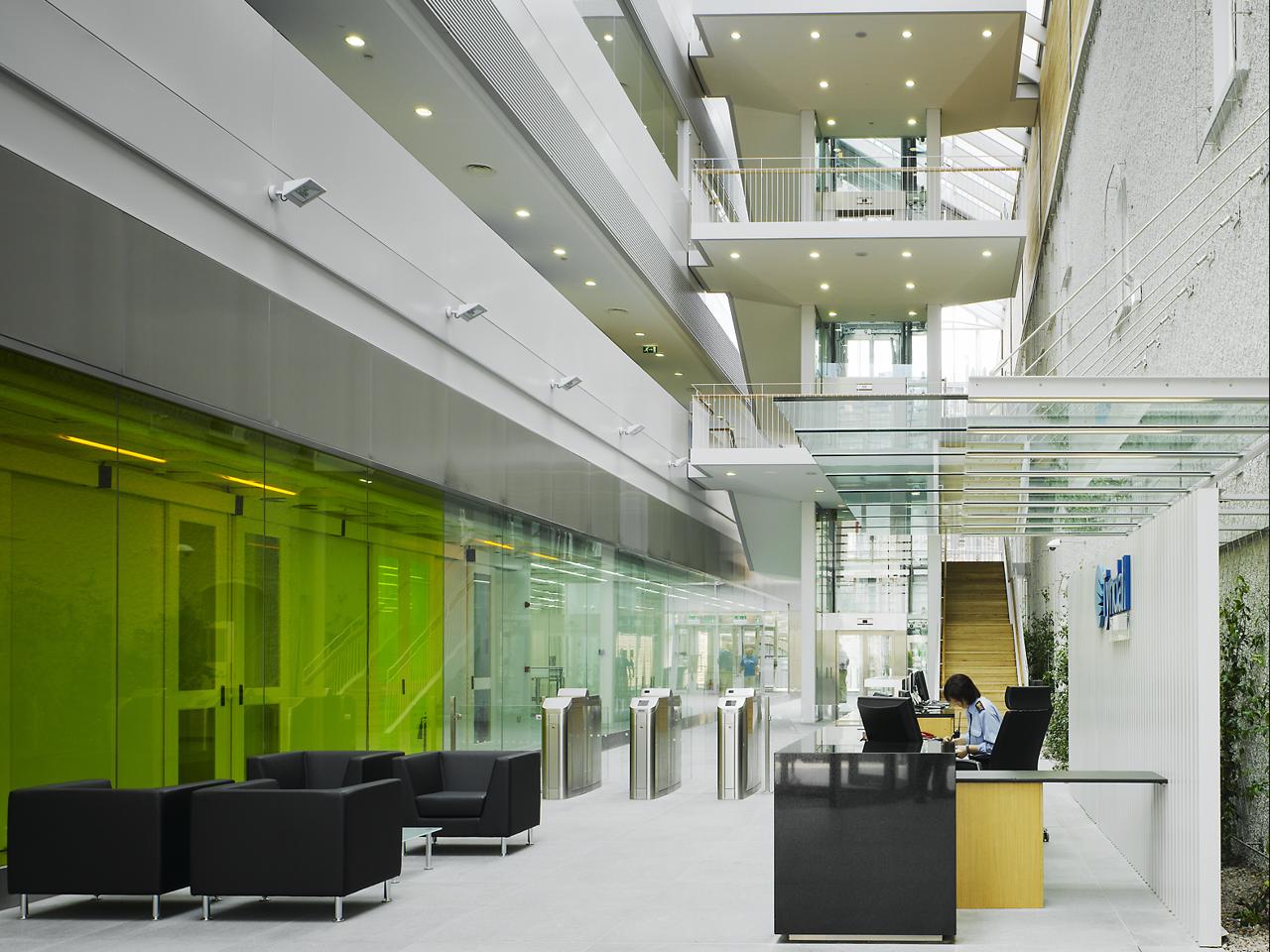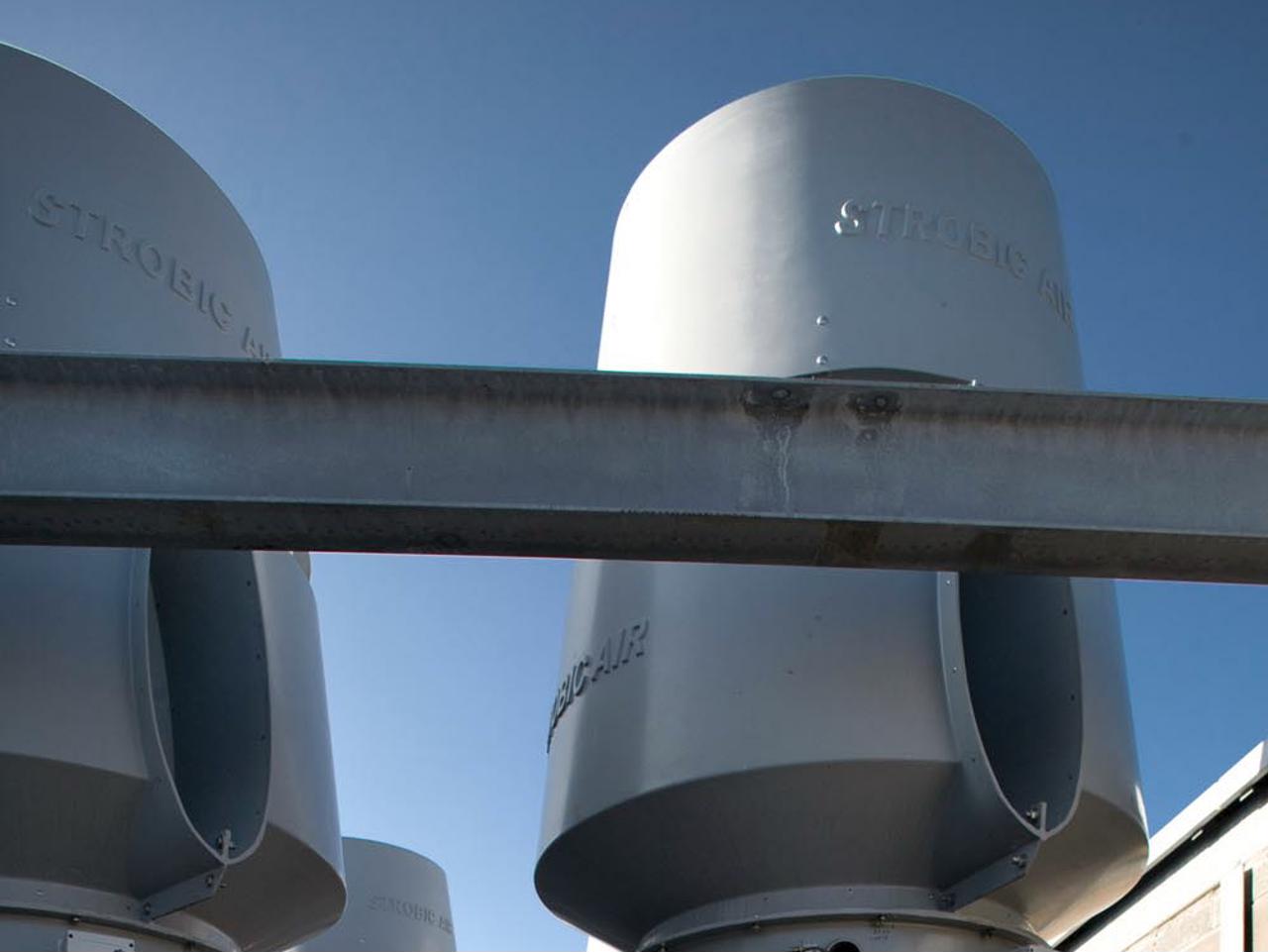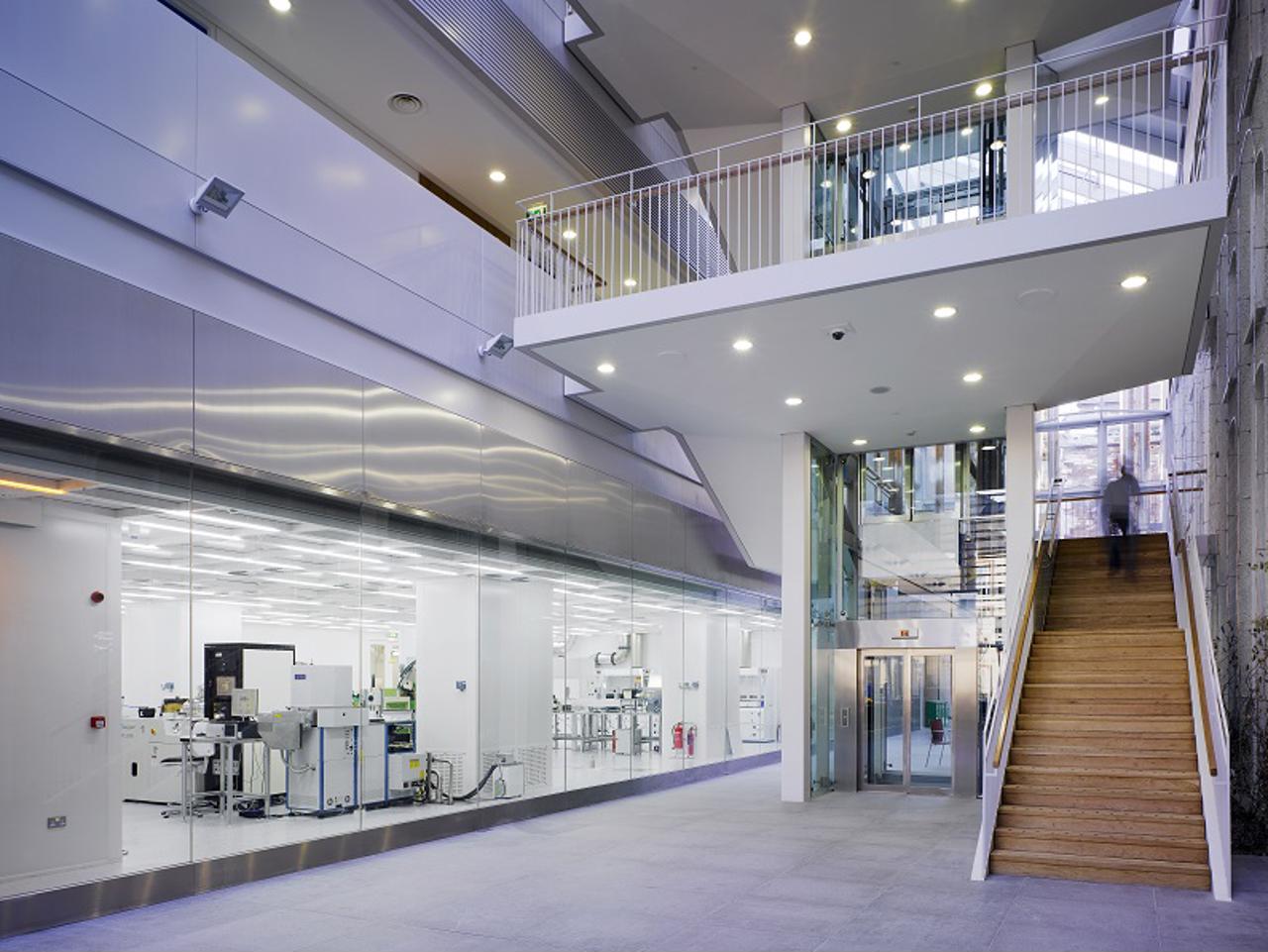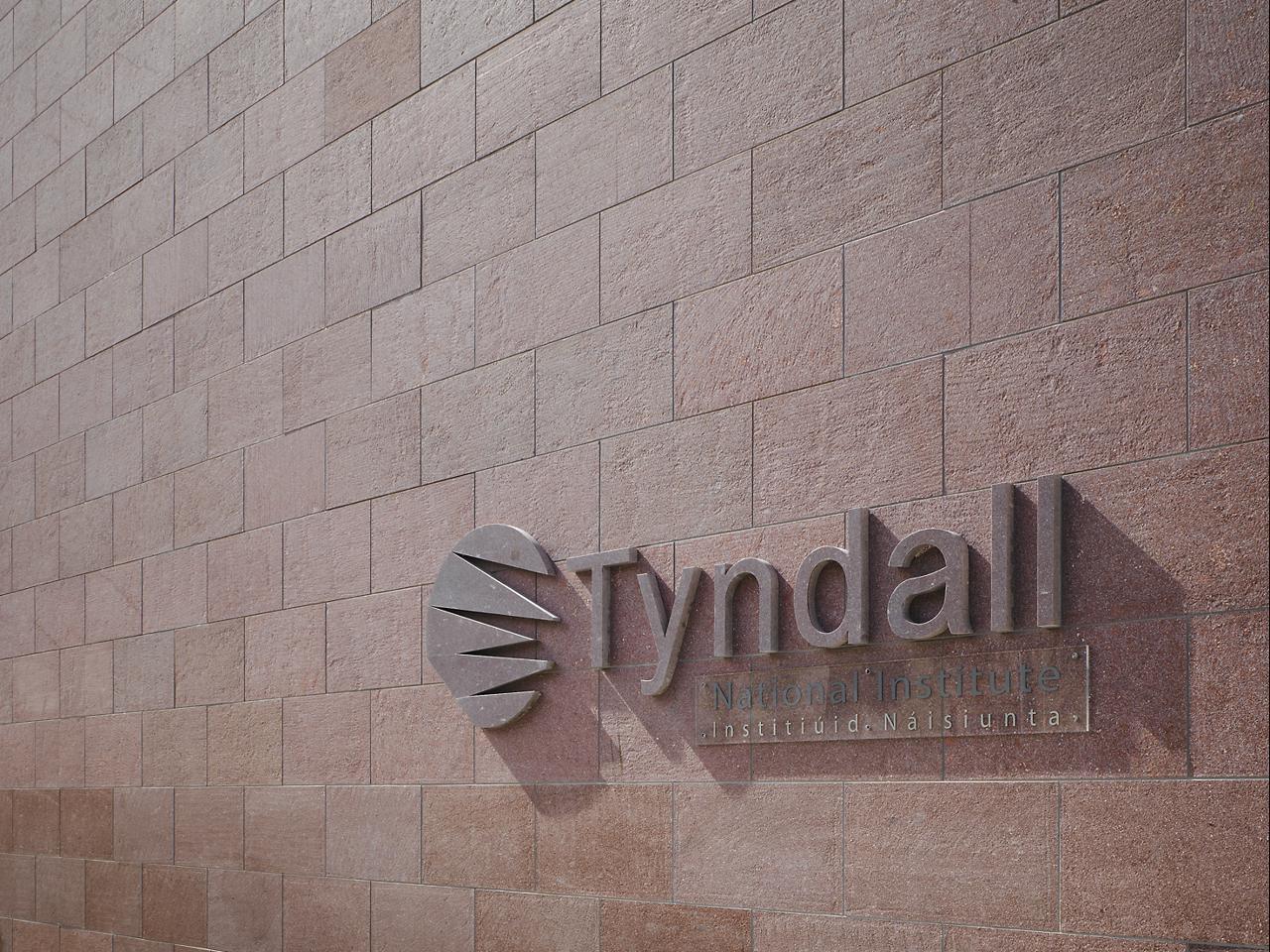



Best Corporate Workplace
Cork City Centre Better Building Awards
0
Client
University College Cork
Location
Cork, Ireland
Status
In Use
Area
6250
The form of the building stems primarily from its scientific brief, but responds also to the existing buildings on this sensitive site. Three floors of flexible laboratory space were built over a tall ground floor housing clean rooms. A sub-fab basement extends well below the water table on site. A new atrium links the laboratory building to offices and write-up space in the listed Maltings Building.
Wherever possible, we believe that buildings should showcase the work carried out within. At Tyndall, a glass wall allows views from the main concourse into the FAB (clean room) so that laboratory researchers are highly visible as they carry out the most exciting work in the Institute.
The brief requirements for the project included Class 10,000, Class 1000 and Class 100 clean rooms for handling silicon and 3/5 compound substrates, laid out using a mixture of ‘ball room’ and ‘bay and chase’ designs.
Sustainability was a key driver in this development, as demonstrated in everything from the choice of water-cooled scientific equipment to the use of strobic fans and heat recovery on fume cupboard extracts.
The new building achieved a 73% reduction in CO2 emissions per researcher per annum and has helped the Tyndall to become the first research institute in the world to achieve accreditation to the new international Energy Management Standard ISO 50001:2011.
mail@stwarchitects.com
+353 (0)1 6693000
london@stwarchitects.com
+44 (0)20 7589 4949
cork@stwarchitects.com
+353 (0)21 4320744
galway@stwarchitects.com
+353 (0)91 564881


